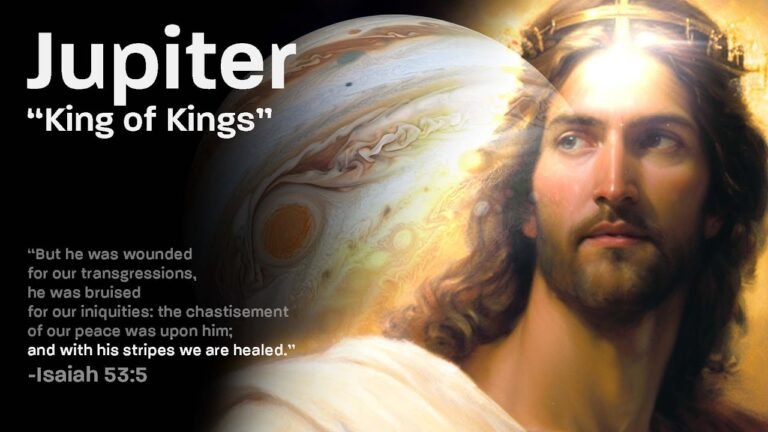Understanding the Significance of Catholic Epiphany
The Catholic Epiphany, celebrated on January 6th, marks a pivotal moment in the Christian calendar, commemorating the revelation of Christ to the Gentiles through the visit of the Magi. This vibrant feast not only highlights the divinity of Jesus but also invites believers to reflect on the broader themes of light and revelation in their own lives. As traditions unfold around the world, from the blessing of homes to the sharing of special foods, the Epiphany serves as a reminder of faith’s universal call and the joy of discovery in the spiritual journey.
What does the Catholic Epiphany symbolize?
The Catholic Epiphany symbolizes the revelation of Christ to the Gentiles, particularly through the visit of the Magi, highlighting his universal significance.
What does the Epiphany represent in the Catholic Church?
The Epiphany is a significant feast day in the Catholic Church, celebrating the revelation of Jesus Christ to the world. This event marks the moment when Christ is recognized not just as a Jewish Messiah but as the universal Savior. It encompasses the visit of the Magi, who brought gifts to the newborn King, symbolizing His recognition beyond the boundaries of Israel.
According to the Catechism of the Catholic Church, the Epiphany emphasizes Jesus’ dual identity as both the Messiah of Israel and the Son of God. This manifestation highlights the divine nature of Christ and His mission to redeem humanity. The gifts of gold, frankincense, and myrrh presented by the Magi signify His royalty, divinity, and humanity, respectively, reinforcing the multifaceted role He plays in salvation history.
Celebrated on January 6th, the Epiphany invites the faithful to reflect on the broader implications of Christ’s birth. It serves as a reminder that Jesus came for all people, transcending cultural and ethnic divides. This feast encourages believers to embrace the light of Christ in their lives and to share that light with others, embodying the message of hope and salvation that the Epiphany represents.
What is the significance of January 6th being referred to as Epiphany?
January 6th is known as Epiphany, a significant feast day in the Christian calendar that commemorates the revelation of Christ to the world. This date is attributed to Epiphanius of Salamis, who declared it as Christ’s “Birthday” or “Epiphany,” suggesting that it marks not only the Nativity but also pivotal events like the Miracle at Cana. While he placed the Baptism of Jesus on November 6, Epiphany has come to symbolize the manifestation of Christ’s divinity, making it a day of joy and reflection for Christians around the globe.
What is the reason for celebrating Epiphany 12 days after Christmas?
Epiphany, celebrated twelve days after Christmas, marks the culmination of the festive season, symbolizing the journey of the three wise men who followed the Christmas Star to find the newborn Jesus. This period represents the time it took for them to travel, highlighting the significance of their gifts and the revelation of Christ to the world. In many cultures, this day is also a time for families to come together and exchange gifts, further enriching the spirit of giving and celebration that begins with Christmas.
Illuminating the Meaning Behind Epiphany Traditions
Epiphany is a celebration rich in symbolism and tradition, marking the revelation of Christ to the Gentiles. Celebrated on January 6th, it serves as a reminder of the significance of light in the darkness, as represented by the Star of Bethlehem guiding the Magi. This day transcends mere historical events; it embodies a deeper spiritual awakening that encourages reflection and renewal in the hearts of believers around the world.
Across various cultures, Epiphany traditions vary, yet they all share a common thread of illumination and insight. In many Latin American countries, families gather to share the Rosca de Reyes, a sweet bread shaped like a crown, symbolizing the unity and joy of community. In Eastern Orthodox Christianity, the day is marked by the Blessing of the Waters, a ritual that celebrates the baptism of Jesus and emphasizes the importance of purification and new beginnings. These customs not only honor the past but also inspire a collective hope for the future, inviting everyone to experience their own moments of revelation.
The essence of Epiphany lies in its call to discover deeper meaning in our lives. It encourages individuals to seek enlightenment through acts of kindness, introspection, and connection with others. By embracing the light that Epiphany represents, we can navigate our personal journeys with renewed purpose and clarity. Whether through festive gatherings or quiet contemplation, the traditions surrounding this celebration remind us that every day holds the potential for new insights and transformative experiences.
Discovering the Spiritual Depth of Catholic Celebrations
Catholic celebrations are rich with spiritual significance, offering a profound glimpse into the heart of the faith. Each feast day and sacramental rite invites participants to engage not only with the rituals but also with the underlying messages of hope, redemption, and community. From the solemnity of Lent to the joyous festivities of Easter, these moments provide opportunities for reflection and connection, drawing believers closer to the divine and to one another.
The liturgical calendar serves as a roadmap for spiritual growth, guiding the faithful through seasons that mirror the journey of life itself. During Advent, the anticipation of Christ’s coming fosters a deep sense of hope and preparation, while the vibrant celebrations of Pentecost empower individuals to embrace their mission in the world. Each celebration is steeped in tradition, with prayers, songs, and symbols that resonate across generations, reminding participants of their shared heritage and purpose.
Moreover, the communal aspect of Catholic celebrations enhances their spiritual depth. Gathering with fellow parishioners fosters a sense of belonging and mutual support, as individuals come together to celebrate their faith. These communal experiences, whether through Mass, sacraments, or special events, reinforce the idea that spirituality is not just an individual journey but a collective pilgrimage. In embracing these rich traditions, believers find a deeper understanding of their faith and a renewed commitment to living it out in their daily lives.
Unveiling the Revelations of Epiphany in Faith
Epiphany is a profound moment that illuminates the essence of faith, revealing insights that transcend the ordinary. It is during these transformative experiences that individuals often find clarity and purpose, forging a deeper connection with the divine. As the layers of doubt and uncertainty peel away, believers are inspired to embrace their spiritual journey with renewed vigor. This unveiling not only enriches personal belief but also fosters a sense of community, as shared revelations encourage dialogue and understanding among diverse faiths. Ultimately, the insights gained during these enlightening moments serve as guiding stars, leading seekers toward a more profound and meaningful existence.
The Catholic Epiphany invites believers to reflect on the profound revelations of faith and the light of Christ that guides their spiritual journey. This celebration not only honors the manifestation of Jesus to the world but also encourages individuals to seek their own moments of insight and transformation. As we embrace the lessons of this sacred occasion, we are reminded of the importance of openness to divine surprises and the joy that comes from recognizing the extraordinary in the ordinary.







